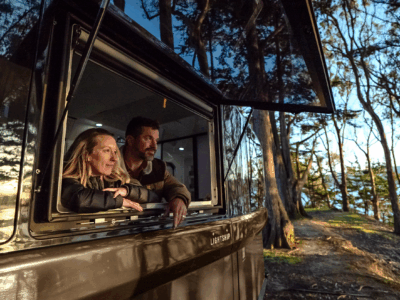It’s not often that octopuses are described by scientists using terms like “online influencer,” “corporate executive,” and leader. However, it is the case for animal behaviorists and other researchers talking about a recent study from Nature Ecology & Evolution succinctly titled, “Multidimensional social influence drives leadership and composition-dependent success in octopus–fish hunting groups.”
It’s fairly common for octopuses and various fish to team up and form mixed-species hunting parties in search of food hiding between rocks and other shelters. The study, which hoped to better understand the behaviors and nuanced details within these hunting parties, found something quite funny along the way.
The octopuses not only acted as the leaders of the groups but were more than willing to literally punch fish that didn’t follow the perceived “rules” of the party.
An average day, or big blue, octopus (Octopus cyanea) reaches almost 3 feet in size, and the predatory, short-lived species lives in the reefs of tropical waters stretching from Hawaii to East Africa. Given that enormous size compared to most of the fish in these groups, the octopuses seemed to get the better end of the deal. Fish would surround an octopus as it hunted and spread out in what can be described as scouting parties.
Photo Courtesy NOAA Office of Ocean Exploration and Research
Once a fish spotted a potential food source hiding under a rock or in a crevice, it would simply stay by that location, signaling to the octopuses that food was nearby. Normally, the interaction would then end with the day octopus enveloping the rock and eating the creature hidden inside or below. However, the intended prey would occasionally dart out from the hiding place, giving the fish in the hunting party a chance to, well, hunt.
The blue goatfish, known for working in pairs or groups to hunt in general, was understandably the most helpful hunting partner for the cephalopods of all the fish species tracked. On the other hand, Blacktip groupers were the worst team players and labeled as “exploiters.”
Exploiters aren’t well-liked in the animal kingdom, and when fish — more often than not the groupers — in the hunting parties would overcrowd a cephalopod, they got what was coming to them.
Dr. Eduardo Sampaio, the study’s lead author and a postdoctoral researcher at the Max Planck Institute of Animal Behavior, aptly describes what happens next: “Then the octopus starts punching.”
Video Courtesy NPG Press
For all the answers the comprehensive study unearthed, it simultaneously launched an entirely new set of questions and speculation about animal behavior. Scientists had long thought that such in-depth social lives and interactions were reserved for vertebrates. However, these findings suggest that it also applies to at least one invertebrate species — the big blue octopus — which is a remarkable discovery.
A discovery that, according to Sampaio, shows that we humans have a lot more in common with the day octopus than we thought.
“I think sociality, or at least attention to social information, is way more deep-rooted in the evolutionary tree than we might think,” he told NBC News. “We are very similar to these animals. In terms of sentience, they are at a very close level or closer than we think toward us.”
This also brings up another, similar point: can anyone really doubt the intelligence of an animal species that only throws hands at exploiters?





